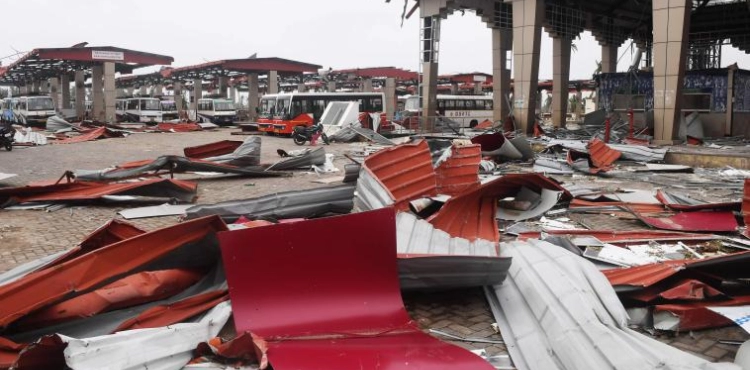The death toll from the cyclone that hit India and Bangladesh rose to 42 on Sunday as rescue teams rushed to repair water supply lines and roads damaged by the storm.
Twenty-nine deaths have occurred in the eastern Indian state of Odysha and 13 in Bangladesh, according to officials from the two countries - a small figure compared to deaths caused by previous hurricanes.
Cyclone Fani hit Odecha on Monday, accompanied by winds of up to 200 kilometers an hour before pulling back as he headed for Bangladesh.
Peshinobada Sethi, a relief official in Odesha, said 21 deaths were reported from the hurricane in the holy city of Puri to Hindus.
"We are trying to verify the identity of the victims, but with the communications lines being affected, it takes some time," Agence France-Presse said.
The death toll in Bangladesh included six people who were struck by lightning, said disaster management official Ghulam Mustafa.
Thousands of trees, mobile towers and roofs were uprooted. Electricity has been cut off from many homes for three days.
Fannie was the first cyclone to hit the coast of India on the Bay of Bengal during the summer for 43 years and the third over the past 150 years, according to Odysha Prime Minister Navin Patnaik.
The United Nations and experts praised India for its success in evacuating the 1.2 million people who were in the course of the massive storm, rapidly contributing to a reduction in the death toll.
Most of the population of Odesha has been affected by the improved weather forecasting techniques, awareness campaigns and well-trained evacuation plans, as well as a full army of relief and volunteers.
A typhoon killed Odysha in 1999, killing 10,000 people.












